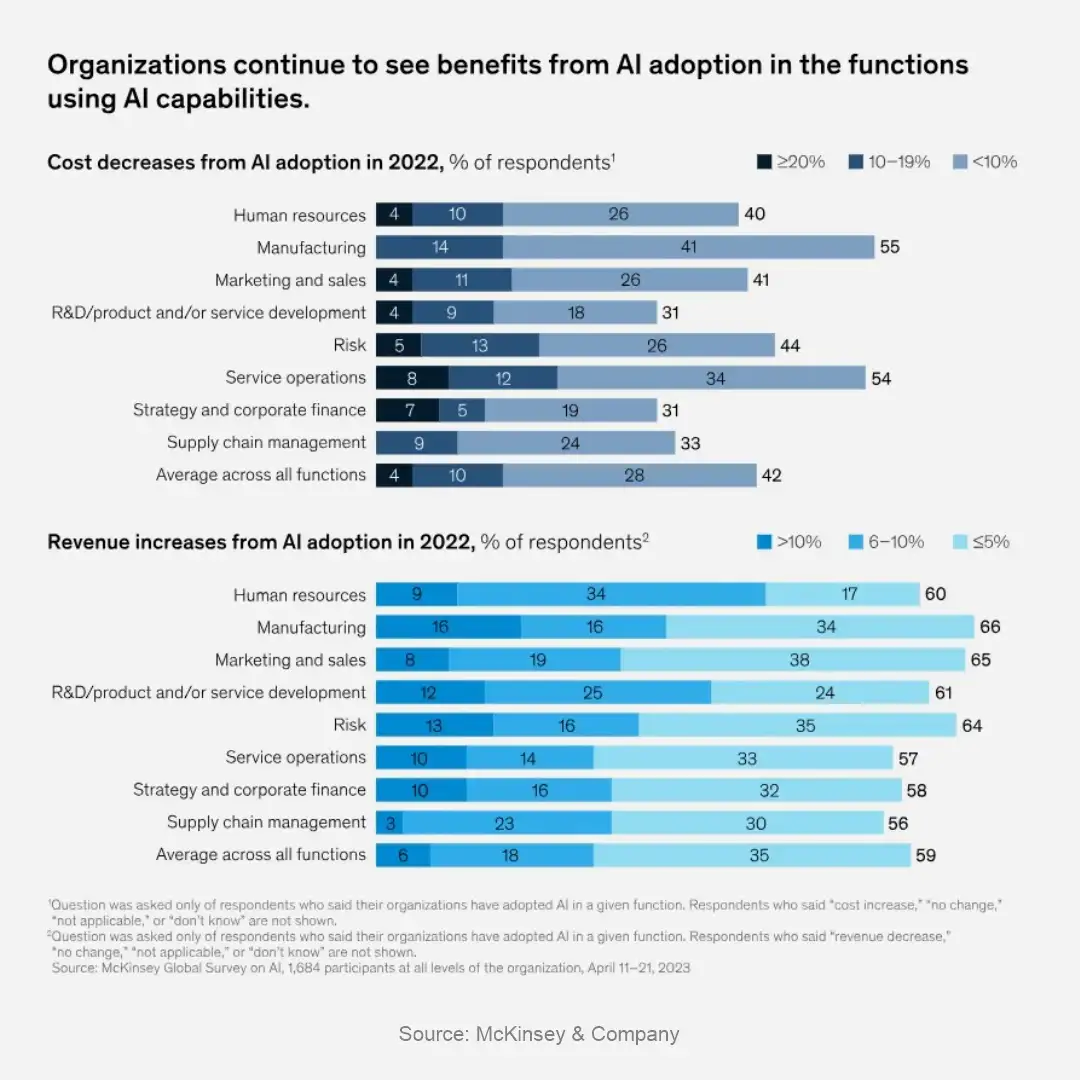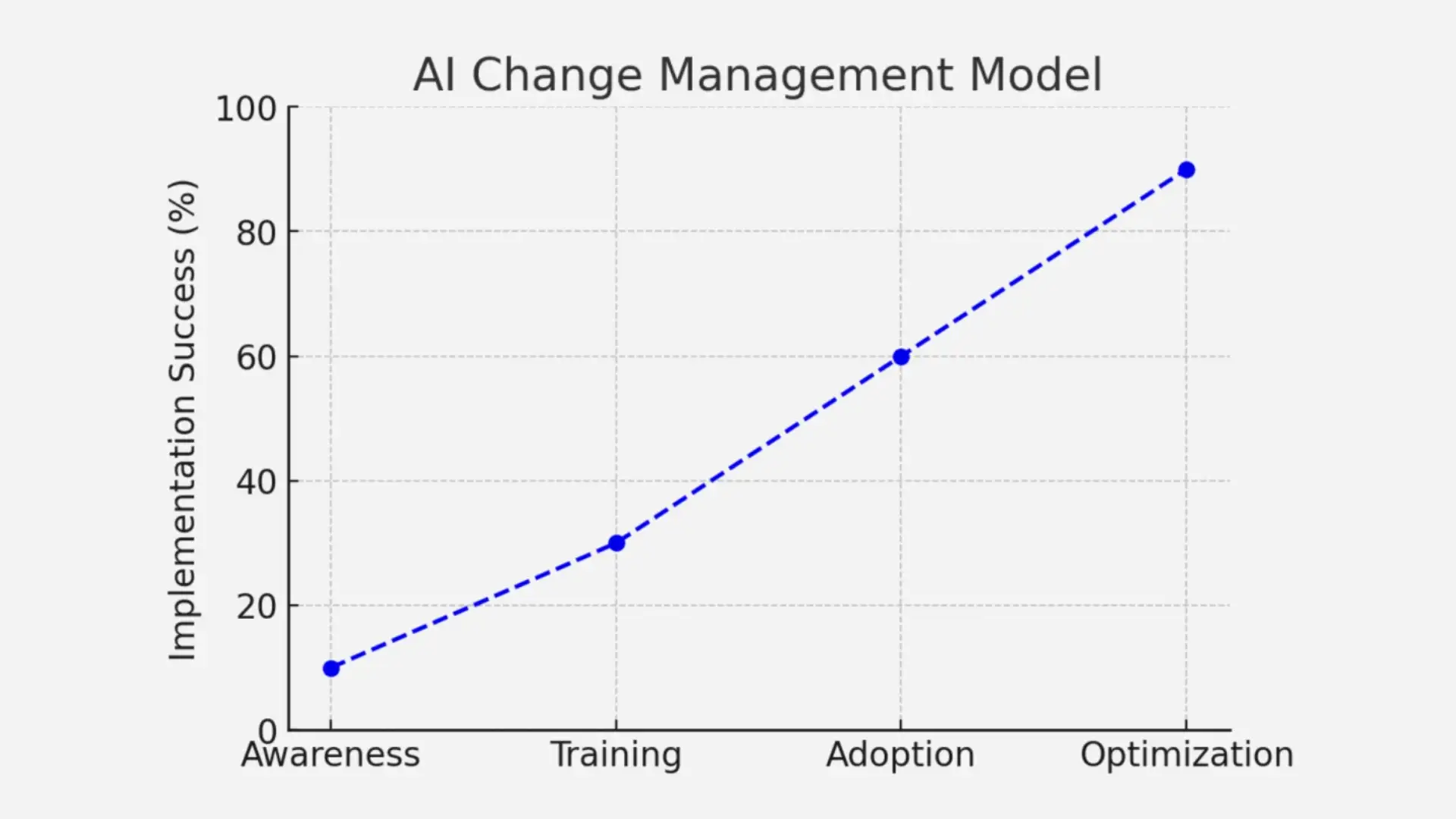
Artificial Intelligence has evolved from an emerging field limited to few niche areas into a fundamental driver for businesses across the globe and redefining their competitive advantage. Today, AI is reshaping the corporate landscape across industries at an unprecedented pace by automating operations including but not limited to driving strategic decision making in organizations. For Executives, understanding how to harness AI effectively has become more crucial than ever to maintain competitive advantages for their organizations. The impact of AI has extended beyond improvement of operational efficiency, influencing organizational culture, leadership strategies and future business models.
The transformation and adoption of AI requires both technical acumen and strategic foresight. Today, AI can be leveraged to optimize workflows, enhance predictive analysis, deliver actionable insights and improve customer experience. The success of initiatives for AI Transformation depends on aligning its implementation with business goals. As any software applications always evolves with time based on consumer needs and insights, AI Transformation is also a continuous journey that requires investment in talent, data infrastructure, governance and ethical considerations.
This article is an attempt to provide a playbook for Executives to strategically drive success for their AI business transformation in their organizations, incorporating leadership insights supported with applied statistical methods and key mathematical models.
The Business Case for AI: From Hype to Value
The adoption of AI has moved beyond the hype and casual conversations over a coffee table, demonstrating tangible business values across industries. Organizations are effectively using AI to achieve operational efficiency and data-driven decision-making with actionable insights for a strong competitive advantage.
More importantly, the, benefits of AI transformation will fall in line with the reduction of repetitive tasks, automation of workflows, and processing of large sets of data for predictive insight with accuracy. AI-driven personalized customer engagement is driving brand loyalty and revenue growth. AI also powers faster innovation cycles and quicker responses to the changing demands of organizations. Today, lacking AI enablement poses a significant risk to any organization towards losing its competitive edge in the market among its competitors.
Applied Statistics and Mathematical models play a crucial role in maximizing these business impacts from AI. Sale trends and business performance can be forecasted with Linear regression models, while time series analysis can improve demand forecast and pricing strategies. The Bayesian Inference can be utilized to support risk assessment, allowing leaders to make data driven strategic decisions. Clustering algorithms such as K-Means and DBSCAN are widely used
for customer segmentation, enabling personalized marketing strategies and targeted business expansion.
Companies like Amazon and Walmart leverage AI-driven demand forecasting, marketplace pricing optimization, and inventory management to enhance operational efficiency and boost sales. Predictive analytics models, utilization of regression and clustering techniques allow businesses to anticipate consumer behavior and adjust supply change management. The impact of AI is not limited to a single area but spread across multiple business functions in a company.
The below survey report from McKinsey & Company demonstrates the cost decrease and revenue increase from AI adoption

The AI Transformation Framework: A Step-by-Step Guide for Leaders
A structured approach is essential for AI Transformation and is key to its success. Executives must navigate AI Adoption through a five-step framework to maximize success:
Step 1: AI Readiness Assessment
Organizations must first evaluate their AI readiness by assessing their data infrastructure, workforce capabilities and AI maturity. There are multiple tools and methods that can be leveraged for this. Principal Component Analysis (PCA) can be used to identify the key factors for influencing AI adoption, ensuring the available data at disposal supports the advanced AI applications. Additionally, Kolmogorov-Smirnov tests can help to validate whether the data distribution is suitable for AI modeling and generalization.
Step 2: Strategic AI Roadmap
Once readiness is established, Executives need to define a roadmap that aligns the AI Initiatives with business objectives and company goals. This includes setting measurable KPIs, OKRs and assess financial risks by using techniques like Monte Carlo simulations. An effective AI strategy also incorporates AI Ethics & Compliance strategy to address ethical concerns and regulatory challenges, ensuring responsible deployment of AI.
Step 3: Implementation Strategies
Choosing the right tool stack and AI models is critical for success. Supervised learning models such as Random Forests and Neural Networks are effective for predictive analytics, while unsupervised techniques like clustering provide valuable insights into unstructured data. Organizations must also implement MLOps best practices to streamline AI deployment and improve model performance.
Step 4: Change Management & Workforce Enablement
Adoption of AI and reducing resistance to change can be achieved through AI literacy trainings and workshops, supported by Executive Sponsorship. To ensure smoother transitions, Natural Language Processing (NLP) models can be used for HR automation and sentiment analysis of employees towards AI. Executives must create a collaborative AI adoption strategy by engaging with employees to balance technological advancements with human skills.

Step 5: Scaling AI for Long-Term Growth
Scaling AI that is sustainable, transparent and accountable, Executives must set up robust policies and frameworks for governance, privacy and reduction of biases for AI-driven decisions. This should also include adherence to legal and ethical standards. Additionally, scalability of AI depends on aligning AI enablement with long term business objectives of the enterprises. By embedding AI transformation with company strategy, organizations can achieve sustainable, legally compliant and ethically responsible AI adoption.
Overcoming AI Transformation Challenges
While AI offers significant advantages, organizations face common challenges to adoption. Executives must address such challenges, including but not limited to:
Conclusion
Artificial Intelligence is no longer a futuristic concept but a strategic necessity that defines the success and sustainability of the enterprises in the market. Integrating AI into the core business functions enables enterprises in future proofing themselves in the rapidly evolving market. The ability to harness AI for operational efficiency, data driven strategic insights and decision making enables organizations in maintaining competitive advantage.
However, the journey of AI transformation is a continuous one requiring investment in data infrastructure, talent, governance and ethical AI practices. Successful implementation and deployment of AI solutions require a structured approach including strategic planning and execution. Organizations that fail to recognize this shift are at risk to be outpaced by competitors in the market who leverage AI to drive agility, innovation and growth.
Executives must go beyond implementation of AI tool stack and cultivate a culture shift for their organizations with AI-driven mindset. This will involve fostering cross functional collaboration, promoting AI literacy for adoption including transparency, fairness and ethical considerations.
While there will be challenges around user adoption, data privacy concerns and AI model biases, businesses that proactively address these hurdles will emerge as the industry leaders. Executives must ensure AI governance framework, ethics and regulatory compliance are in place to enhance stakeholder trust and mitigate potential risk to their organizations.
In conclusion, AI driven transformation is an imperative to today’s market. As AI continues to evolve, enterprises must remain agile and adaptable. They shouldn’t just view AI as a tool but a cornerstone of their future business strategy. Finally, AI business transformation is more than a technological shift. It is a strategic revolution.
Follow us: